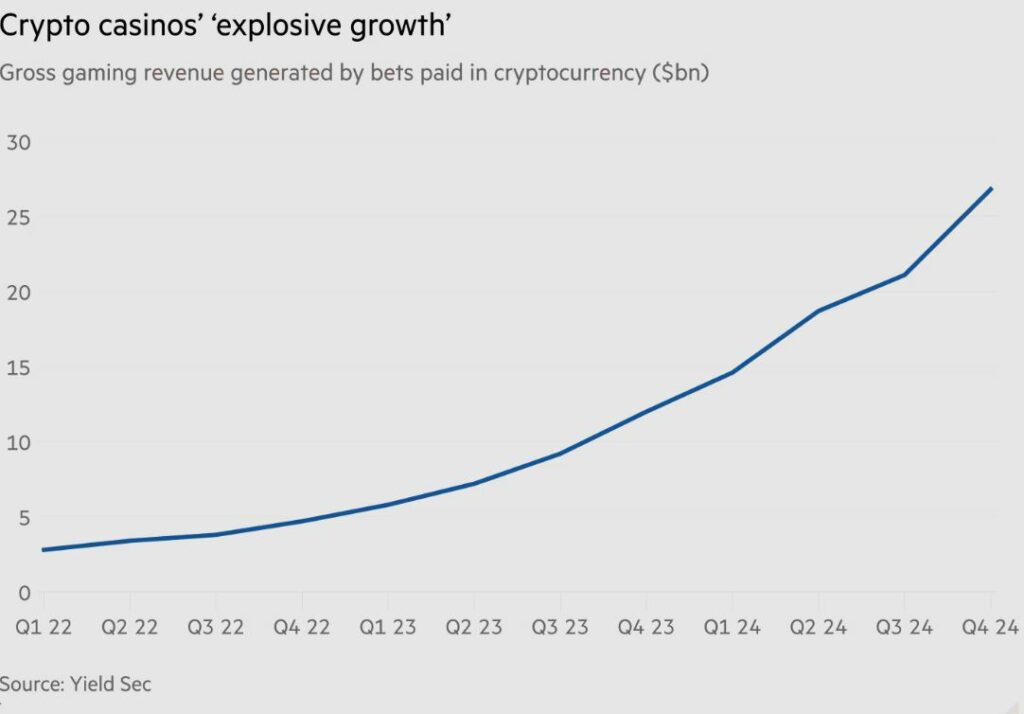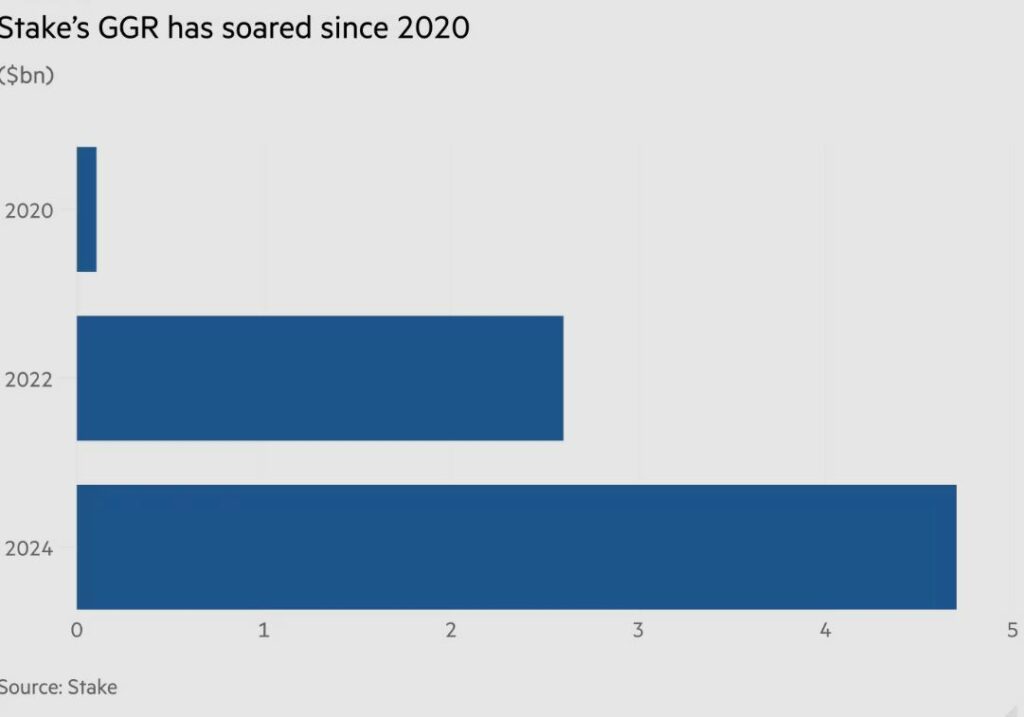
Crypto casinos are now making more money than ever. In 2023, these platforms earned over $81.4 billion in gross gaming revenue (GGR). This is five times higher than in 2022. But many of these sites are illegal in most countries.

Huge Growth in Crypto Gambling
A report by Yield Sec, a group that fights online crime, found that crypto casinos made $81.4 billion in gross gaming revenue (GGR) in 2023. This is the amount of money casinos earn after paying out winnings. It is five times higher than in 2022.
The growth is happening all around the world, said Yield Sec founder Ismail Vali. Even though crypto gambling is banned in places like the US, UK, China, and the EU, many people still play by using VPNs and mirror websites.

How Gamblers Get Around the Rules
Gamblers use tools like VPNs to hide their location. They also use links that redirect to casino websites. According to experts, it’s easy to find guides online on how to bypass country blocks. Some influencers even promote these methods and offer tutorials to help users join.
User accounts can also be bought and sold on peer-to-peer marketplaces. This makes it even easier for people to access these websites.
Where Are Crypto Casinos Based?
Most crypto casinos are set up in places where the law allows online gambling. These include Curaçao, Malta, the Isle of Man, and Gibraltar. Big names in the industry include Stake, Rollbit, and Roobet. They are now as large as traditional gambling companies.
Stake, for example, says it has 25 million users. It has processed 300 billion bets since 2017. In 2023, Stake made $4.7 billion in GGR — 80% more than the year before. Stake claims that it handles up to 4% of all bitcoin transactions worldwide.

Legal Grey Area
Stake says it is not just a crypto casino. It says most of its transactions are in normal money, not crypto. The company also says it blocks VPN users and follows all laws, including anti-money-laundering rules and identity checks.
But reporters at the Financial Times tested the system. They opened an account from London using a VPN. They were able to start gambling before being asked for ID or proof of address.
Experts say there are tens of thousands of crypto casinos online, with tens of millions of users. On average, deposits on these sites are 10 times higher than on regulated platforms.
In the UK and the US, using a VPN to access offshore casinos is not illegal. But the casino may break the law by allowing access to UK or US users. For example, Stake.com is not legally available in the UK.
Weak Rules and Big Risks
Many crypto casinos don’t ask for much ID. There are a few checks for age or spending limits. This makes them attractive to underage and problem gamblers, especially in countries like China, where online gambling is totally banned.
Rob Minnick, a US-based campaigner, said he started gambling as a teenager using a VPN on Rollbit. He said when crypto prices rose, he felt rich and bet more. When prices fell, he tried to win back losses. It became a dangerous loop.
Another former gambler called crypto casinos a “double gamble” because they combine the risk of gambling with the ups and downs of crypto prices.
Influencers and Misinformation
Many young people believe crypto casinos offer better odds than traditional ones. This belief often comes from watching influencer videos. These influencers also offer vouchers, bonuses, and advice on bypassing restrictions.
Some crypto casinos sponsor big football clubs. For example:
- Stake sponsors Everton
- Roobet works with Chelsea
- Rollbit has a deal with Leicester City
These partnerships help crypto casinos reach a global audience. Sometimes they use “white label” licenses to operate legally in countries where they otherwise couldn’t.
What Are White Label Licenses?
A white label license allows a company to run a gambling site using another company’s legal permission. In the UK, this means overseas brands can operate under the license of a UK provider. But experts say this system is often abused.
The UK Gambling Commission fined TGP Europe (a white label provider for Stake) over £300,000 in 2023 for not following anti-money-laundering and safety rules.
In April 2024, the UK Gambling Commission sent 287 warnings to companies that allowed crypto as a payment method. It is also investigating videos promoting gambling with adult content.
The Commission has asked football clubs to confirm that they are not promoting illegal websites. Campaigners say white label systems make it too easy for unregulated casinos to appear legitimate.
Final Thoughts
Crypto casinos are now a huge part of the online gambling world. They are growing fast and competing with traditional casinos. But many operate in legal grey areas. They use VPN tricks, white label licenses, and influencer marketing to reach users in places where they are banned.
Experts warn that these platforms are risky, especially for young or problem gamblers. They also say that regulators need to catch up fast to protect users.
As crypto gambling continues to grow, the debate over how to control it is just beginning.























